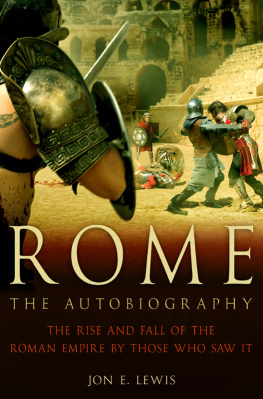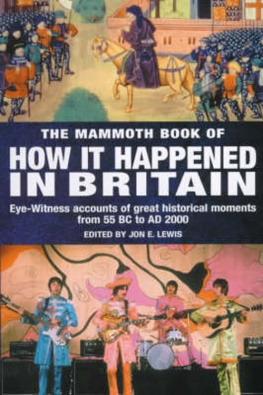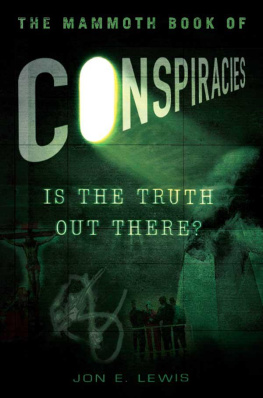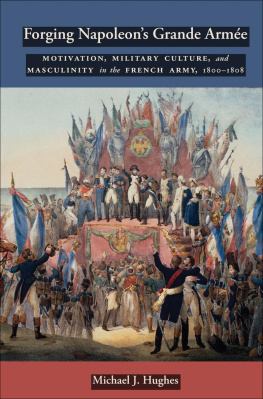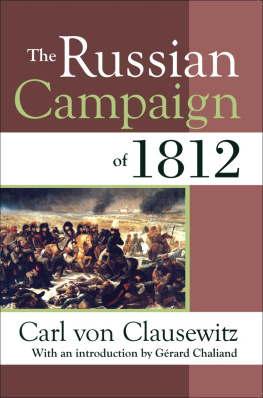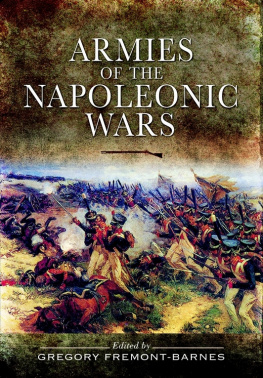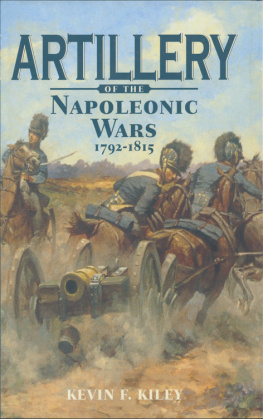Jon E. Lewis is a writer and historian. His many previous books include bestsellers The Mammoth Book of the West, The Mammoth Book of Polar Journeys, The Mammoth Book of True War Stories and World War II: The Autobiography. He lives in Herefordshire, England, with his partner and children.
Also available
Voices from D-Day
Voices from the Holocaust
The Mammoth Book of Historical Crime Fiction
The Mammoth Book of Travel in Dangerous Places
The Mammoth Book of the Vietnam War
The Mammoth Book of Westerns
The Mammoth Book of the World Cup
The Mammoth Book of the Rolling Stones
The Mammoth Book of Air Disasters and Near Misses
The Mammoth Book of the Lost Chronicles of Sherlock Holmes
The Mammoth Book of Conspiracies
The Mammoth Book of Prison Breaks
The Mammoth Book of Fun Brian Training
The Mammoth Book of Best New SF 27
The Mammoth Book of Time Travel SF
The Mammoth Book of Best New Horror 25
The Mammoth Book of Best British Crime 11
The Mammoth Book of Dracula
The Mammoth Book of Monsters
The Mammoth Book of Merlin
The Mammoth Book of Paranormal Romance 2
The Mammoth Book of IQ Puzzles
The Mammoth Book of The Mafia
The Mammoth Book of Special Forces Training
The Mammoth Book of New CSI
The Mammoth Book of Native Americans
The Mammoth Book of New Tattoo Art
The Mammoth Book of Antarctic Journeys
Voices from the Napoleonic Wars
From Waterloo to Salamanca, 14 eyewitness accounts of a soldiers life in the early 1800s
Edited by Jon E. Lewis

ROBINSON
First published in Great Britain in 2001 as The Mammoth Book of Soldiers at War
by Robinson, an imprint of Constable & Robinson Ltd.
This edition published in 2015 by Robinson
Copyright J. Lewis-Stempel, 2001
The moral right of the author has been asserted.
All rights reserved.
No part of this publication may be reproduced, stored in a retrieval system, or transmitted, in any form, or by any means, without the prior permission in writing of the publisher, nor be otherwise circulated in any form of binding or cover other than that in which it is published and without a similar condition including this condition being imposed on the subsequent purchaser.
A CIP catalogue record for this book
is available from the British Library.
ISBN 978-1-47213-615-2 (paperback)
ISBN 978-1-47213-616-9 (ebook)
Robinson
is an imprint of
Constable & Robinson Ltd
100 Victoria Embankment
London EC4Y 0DY
An Hachette UK Company
www.hachette.co.uk
www.littlebrown.co.uk
Die hard, 57th, die hard!
Lieutenant-Colonel William Inglis to his battalion, Albuera, Spain, 16 May 1811
For Tristram, Freda and Penny
CONTENTS
Not without reason were the French Revolutionary and Napoleonic Wars once known collectively as the Great War. The campaigns of France from 1793 to 1815 composed the largest military endeavour in European history until the armageddon of 1914.
And, dare one say it, the most interesting. Contemporaries were mesmerised by Boney and exploits, and time has done little to lessen his and their magnetism. Few of us care about the to-ing and fro-ing of the Seven Years War, the Thirty Years War, the Hundred Years War, the War of Jenkins Ear or the War of the Roses, but the Napoleonic Wars are the stuff of which wargaming, popular war fiction and historical pressing are made.
The allure is not difficult to understand. Aside from their sheer scale Bonaparte alone had more than a million men under arms in 1812 the Napoleonic Wars possessed a pearl string of celebrated battles: Austerlitz, Wagram, Leipzig, Salamanca, Borodino, Jena, Ligney and had in le Petit Caporal himself the most magnetically intriguing warrior of the second millennium.
Something more about the Napoleonic era entices; the recognition of modernity. The Napoleonic Wars, and the French Revolutionary Wars which preceded them, ushered in a new way of warfare. The road to the Somme and Stalingrad began in the eighteenth century, not the twentieth. The new way of war-making was seen most obviously in the French army itself.
After the overthrow of the ancien regime of Louis XVI in 1789, the ensuing radical republic was obliged to arm itself with something more than the untrustworthy remnant of the regular royal army it inherited. In its stead was fashioned a new model army of volunteers and conscripts, freed from aristocratic hindrances, where officers were promoted on merit not social ranking. (Some of the talent thus allowed to rise did so all the way to Napoleons 26-strong marshalate, one of whom, Victor, had been a mere bandsman before the Republic.) Moreover, the ridding of aristocratic influence allowed some changes in military tactics to rise to the fore, notably the use of the column against the line. Mobile and hard-hitting, usually some 5080 men in width and 912 men deep, the French column, supported by artillery, became the scourge of the European battlefield, and later much emulated by Frances enemies. Behind the French force on the battlefield toiled an economy geared almost exclusively to military ends.
The French soldier, too, differed from his predecessors. A citizen-in-arms, fired up on transcendent political fervour, he fought for a cause as well as the chance for wages and loot. Moreover, the soldat like his Enlightment fellows in Europe and America no longer saw himself as a pawn in Gods game, but an individual with his own destiny to carve. And accordingly, the Napoleonic Wars, with the partial exception of the American War of Independence, were the first to produce a distinct body of soldiers personal memoirs.
It is from these memoirs that the current volume is culled. The Mammoth Book of Soldiers at War presents fourteen voices of those who fought and lived in the land campaigns of the French Revolutionary Wars (17931802), the Napoleonic Wars (18031815) and the attendant War of 1812 (18121815) in North America. Some of these accounts offer a first-hand account of the most historically important moments of the wars, among them the Russian Retreat of 1812 and the battles of Leipzig and Waterloo. As such, they offer fascinating vignettes (a nervous Napoleon at Marengo flicking stones with his whip in Jean-Roch Coignets notebook comes to mind, as does the sombre courage of the men about to storm the fortress of Ciudad Rodrigo in Thomas Grattans memoir) but the primary purpose of this volume is not to chronicle the Napoleonic Wars in eyewitness chapters. It is rather to present the experience of war in the age of Napoleon, what it felt like to be an infantry soldier, a cavalryman, an artilleryman on the battlefield and the marches and bivouacs that led to it. Many of the accounts are by commissioned officers and NCOs for the simple reason that these men were the most likely to be literate and thus pen memoirs, diaries or letters; but this does not negate a ground-view intention. In the Napoleonic Wars, officers led from the front, even when they were as mighty a figure as Marshal Macdonald.
Since the assembled accounts are by those who were there, their vantage points are usually limited, sometimes only to the men, smoke, horseflesh and flying lead immediately around them. This makes for an accurate portrait of combat, but few soldiers turned memoirist were able to resist bulking out their passage with turgid historical explanation, sometimes directly cribbed (Napiers History of the War in the Iberian Peninsula
Next page


